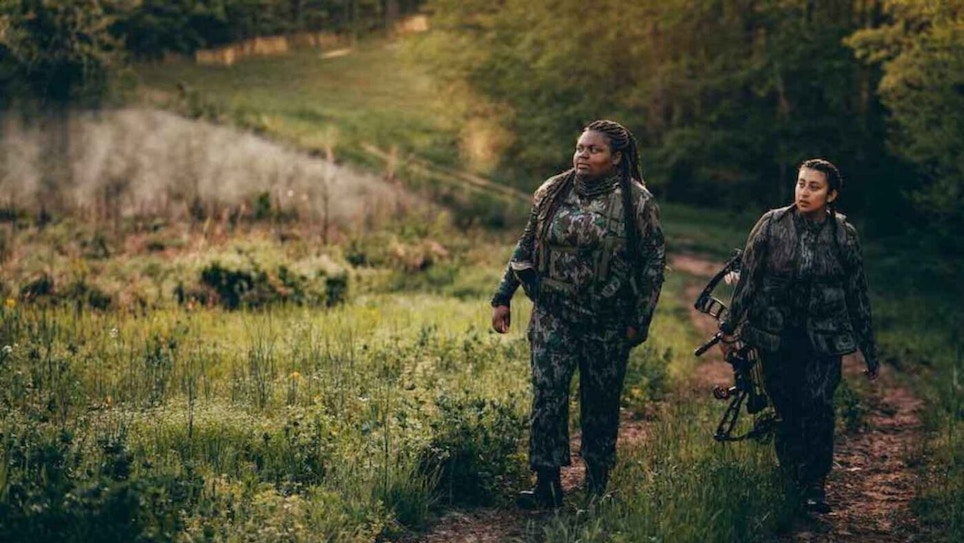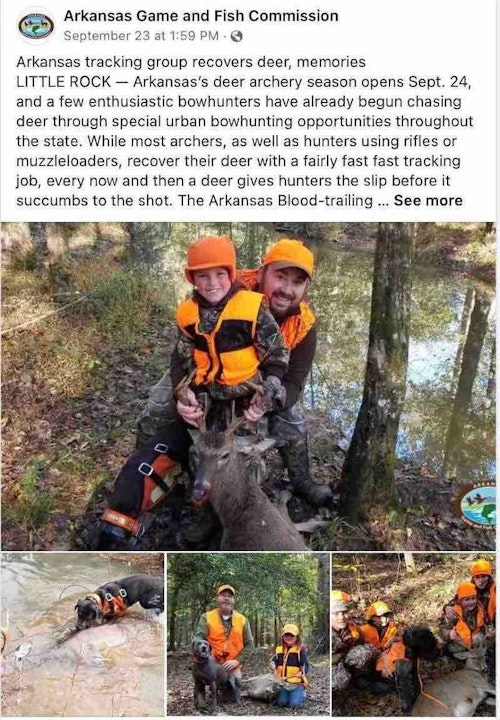
Urban bowhunting helps control whitetail populations and reduces vehicle/deer collisions. It can also help boost your bottom line. (Photo courtesy of ATA.)
Bowhunting is a safe activity and a great way to control deer populations, especially in urban environments. Is it allowed in your town’s limits? If not, work with your state wildlife agency and local government officials to get bowhunting approved as a legal activity within your hometown. Advocating for bowhunting on behalf of your customers can boost business, increase access and create more local hunting opportunities.
What You Need to Know About Urban Bowhunting
Most states have laws that keep hunters from legally discharging firearms and sometimes bows within a certain distance of an occupied dwelling, public road, city trail or park, or city limit. Reasonable discharge restrictions keep people safe, but some cities have unnecessarily burdensome restrictions that limit hunting opportunities.
Check your state agency regulations to find the allowable discharge distances in your home state. Then, check your city ordinances to see if they impose additional restrictions for bows and bowhunters. Cities can’t be less restrictive than agency regulations, but they can be more stringent, and that’s often the barrier and problem.
Ralph Meeker, deer program coordinator for the Arkansas Game and Fish Commission, knows the challenges firsthand and helps cities understand the benefits of — and options for — urban deer hunt programs.
“Every city within our state falls within a deer zone somewhere, but by default, a lot of cities have outlawed hunting inside the city limits by not allowing the discharge of firearms or archery equipment,” he said. “That’s the biggest obstacle. If we can get a city to just change the ordinance, communities and bowhunters can benefit.”
Meeker said urban deer hunting is a contentious subject for a lot of cities and “very divisive,” which is why he’s strategic when offering help, education and advice to city officials. “We never want to be heavy-handed when we approach this,” he said. “We let the city ask us for help and are happy to help however we can.”
Let’s take a closer look at the urban bowhunting opportunities in Arkansas before discussing how to take action in your state.
An Example: Urban Bowhunting in Arkansas
The AGFC started an urban deer hunt program in the late 1990s. It required a lot of time and attention from agency staff, so the agency started working with the Arkansas Bowhunters Association and Bull Shoals Urban Bowhunters Association to maintain the program in nine cities throughout the state. The ABA oversees the program in seven cities, and the BSUBA oversees it in two. Between the two organizations, 770 bowhunters qualified in 2021.
To become a part of the urban deer hunt program, citizens must pay a registration fee, attend an orientation, pass a proficiency test, take a bowhunter education class and possess a valid hunting license through the AGFC. Each city has a minimum age requirement and its own hunting rules and harvest protocols. Additionally, each hunter in the program must donate their first kill to the Arkansas Hunters Feeding the Hungry program. The urban hunt offers unlimited deer tags for participants.
The state also has cities that offer urban bowhunting opportunities through the state’s Deer Management Assistance Program. The program provides technical assistance and allows city officials to have more control over the hunt itself. Meeker believes that DMAP provides opportunities to an additional 130 bowhunters. There are also cities in Arkansas that allow bowhunting as long as bowhunters follow state agency regulations.
The state sells 270,000 annual hunting licenses, and roughly 13% of the deer harvest is from bowhunters. With about 900 people participating in bow-only urban hunts, Meeker said a significant number of people get additional hunting opportunities through the program.
Urban Bowhunting Benefits So, why should states and cities create urban hunting programs and opportunities, and why do so many bowhunters participate? The benefits. Here are the top urban bowhunting benefits, according to Meeker:
By sharing the benefits of urban bowhunting opportunities, you can likely win over city officials and get ordinances favorably changed. Thankfully, most states have agency members who can help.
Take Action
If your city allows bowhunting, learn the rules and share them with your customers while encouraging them to participate. If your city doesn’t allow bowhunting, advocate for change.
Meeker said the best way to influence that change is to work with state agency staff and approach the city council together.
"A lot of times, cities prefer to receive guidance from a federal or state agency that is experienced in dealing with these types of situations,” he said. “There’s a different level of credibility there than maybe from a disgruntled citizen. I’d encourage ATA members, bowhunters, or whoever to reach out to their (state agency’s) deer program coordinator if they feel that their city would benefit from an urban deer hunt. Working with the local bowhunters association can also be helpful.”
It may take some time and persistence but organizing an urban deer hunting program can create new customers who have struggled in the past to find local places to hunt. Your efforts will likely be rewarded by increased business and bowhunter appreciation.
If you have questions or need help connecting with the right person at your state wildlife agency, please contact Josh Gold, ATA’s senior manager of R3 and state relations, at joshgold@archerytrade.org.







